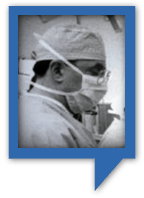Here’s a little story from the early days of my first job as a chairman of surgery.
Shortly after I assumed the role of surgical chairman in a community teaching hospital at the ripe old age of 40, and having absolutely no administrative experience, I visited a mentor of mine whom I had known since I was a medical student.
He had been serving in a similar role at a larger hospital than mine, and I thought he might be able to share some wisdom about how to be a good chairman.
He was dispensing sound advice for most of the hour or so I spent with him. Then he said something that struck me: “Sometimes the unexpected happens and there’s no simple solution.”
He told me that among the challenges he was facing were two lawsuits.
One was from the family of a patient who had died after a carotid endarterectomy that had been performed by a surgeon in his department. The plaintiffs were suing the hospital and my mentor, the surgical chairman, for allowing what they alleged was an incompetent surgeon to do complex vascular surgery.
The other lawsuit was by a surgeon in his department who had requested privileges to perform carotid surgery, which had been denied by my mentor on the grounds that in his opinion, the surgeon was not adequately trained in carotid surgery.
I never heard the outcome of either case, but it certainly seemed like a no-win situation.
Although that encounter occurred some 25 years ago, the problem persists today. For example, patient advocates are concerned that pain is not being adequately addressed. Yet there is an epidemic of abuse of narcotic prescription drugs sweeping across the country.
We also are being criticized for runaway healthcare spending and being encouraged to reduce things like unnecessary testing, while a recent jury verdict for $6.4 million in Philadelphia went against two physicians for failing to order certain tests on a man who had a fatal heart attack 3 months after an emergency department visit for pneumonia.
Some say too many CT scans are being ordered for the workup of appendicitis, worrying that radiation will cause future increased cancer rates. However, in my experience, patients prefer accuracy in diagnosis over a theoretical increased risk of cancer 30 years from now.
Not long ago I was called by an emergency physician who said he had a 17-year-old boy with a textbook case of acute appendicitis. He felt a CT scan was unnecessary. I examined that patient and agreed. I explained to the boy’s mother that I was convinced he had appendicitis and needed surgery. She said, “What about a CT scan?” After a lengthy discussion, I convinced her that the CT scan was not needed. As I made the incision, I said to the OR team, “I sure hope this kid has appendicitis.”
I can think of many more such situations. How should we resolve them?
It seems to be the mantra for modern medicine: “Damned if you do and damned if you don’t.”
Skeptical Scalpel is a practicing surgeon and was a surgical department chairman and residency program director for many years. He is board-certified in general surgery and a surgical sub-specialty and has re-certified in both several times. For 2 years, he has been blogging at SkepticalScalpel.blogspot.com and tweeting as @SkepticScalpel. His blog has had more than 220,000 page views, and he has over 3,000 followers on Twitter.



 SkepticalScalpel
SkepticalScalpel